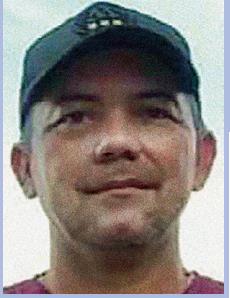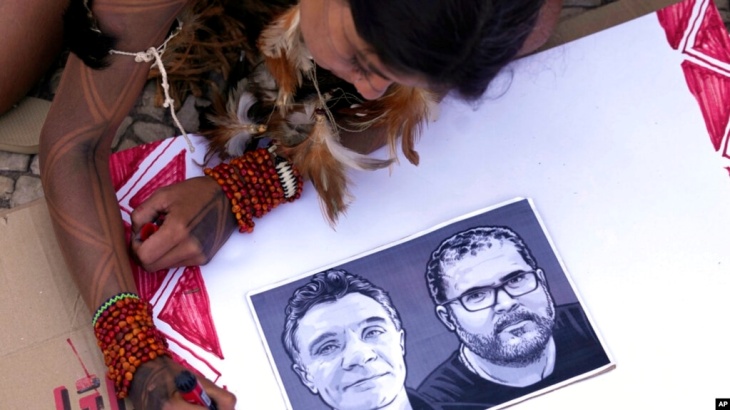Welcome to the latest South America newsletter. Several illegal armed groups in Colombia have agreed to talks after the new President proposed a conditional ceasefire, while new figures have revealed the huge numbers of deaths, kidnappings and disappearances in the civil war. Brazilian police have arrested five more suspects of the killing of Dom Phillips and Bruno Pereira, while UN experts have called on the government to take steps to put an end to police violence. 125 organisations including Amnesty have called for the renewal of the mandate of the UN Fact-Finding Mission on Venezuela. Human Rights Watch have highlighted the scale of sexual violence in schools in Ecuador.
COLOMBIA

Colombia’s recently inaugurated President Gustavo Petro has proposed a multilateral ceasefire with illegal armed groups that agree to negotiate their demobilization and disarmament. According to Colombia Reports, opposition armed groups that have agreed to talks include the ELN (National Liberation Army) two dissident FARC (Revolutionary Armed Forces of Colombia) commands and dissident AUC (United Self-defence forces of Colombia) paramilitaries.
Colombia’s Truth Commission has issued its final report and executive summary on the six decades long civil war in Colombia. Its estimates for the number of victims are much higher than previously thought.
- 450,000 fatalities. Those responsible for deaths were mainly paramilitaries (45%), guerrillas (27%) and state agents (12%).
- Over 110,000 forcibly disappeared. Main perpetrators were paramilitaries (52%), FARC (24%) and state agents (8%).
- At least 50,000 kidnappings. Main perpetrators FARC (40%), paramilitaries (24%), ELN (19%).
- At least 8 million people have been forcibly displaced. 70% of the perpetrators are not recorded.
- Recruitment of child soldiers exceeded 30,000. 40% by the FARC, 13% by paramilitaries and 9% by the ELN.
You can download the Executive Summary with a commentary by the UK’s ABColombia here.
WOLA Colombia Peace report that investigative journalists at Blu Radio allege that corrupt officials in Colombia abused their positions to steal hundreds of millions of dollars in peace accord implementation funds, which were meant for some of the country’s poorest, most violent, and least governed territories. They estimate that 12% of the funds never reached their destination. Three investigations by the Attorney General, the Internal Affairs Office and the Supreme Court are under way. Corruption is endemic in Colombia.
Following their visit to Colombia, the international lawyers group Colombia Caravana is deeply concerned about serious threats to the rule of law that limit access to justice, the repression of political participation and social protest, and the lack of security guarantees for those carrying out vital human rights work in Colombia. They denounce the stigmatisation of legal defence work by conflating lawyers with their clients, the criminalisation of human rights defenders, lawyers and
judges through vexatious litigation
BRAZIL

An indigenous girl colours a poster with slain journalist Dom Phillips and indigenous expert Bruno Pereira in Brasilia.Reuters reports that Brazilian police have arrested 5 more suspects in the killing of British journalist Dom Phillips and indigenous expert Bruno Pereira. The police have issued a statement that Pereira was killed for his opposition to their illegal fishing and that Phillips was killed to stop him from identifying the killers of Pereira.
Following a spate of killing of civilians by Brazil’s police, UN experts called on the Brazilian Government to adopt wide-ranging reforms to put an end to police violence. ‘Such reform must encompass targeted efforts to eliminate racial profiling and racial discrimination, to de-militarise the police and improve the laws and guidelines governing the use of force.’
Amnesty International Brazil has a petition (Portuguese only) demanding that the police must stop its circle of violence and impunity ‘which affects the entire population’. They demand that public attorneys general of the state’s Public Ministries and the President of the National Council of Public Ministries ensure that they undertake to control the police in their territories.
The Guardian reports on the manifesto signed by nearly a million Brazilians that Brazilian democracy faces a moment of “immense danger” amid growing fears that President Bolsonaro could refuse to accept defeat in October’s election. Opinion polls indicate that he is trailing his main opponent, Luiz Inácio Lula da Silva. ‘The manifesto – whose backers include major figures in business, politics, science and the arts – comes after Bolsonaro escalated his attacks on Brazil’s voting system and summoned hardcore supporters to hit the streets “for the last time” before the 2 October vote.’
VENEZUELA
Amnesty, along with 124 other national and international organizations, have called on the United Nations Human Rights Council to renew the mandate of its Independent International Fact-Finding Mission on Venezuela. According to the groups. the Mission, established in 2019 to investigate systematic human rights violations in Venezuela, has played a key role in pushing for accountability for serious crimes in the country and ensuring international scrutiny over the continuing crisis.
ECUADOR
Human Rights Watch have highlighted the alarming number of children exposed to sexual violence in their schools and on their way to school in Ecuador. In August, Ecuadorian media reported on allegations of a rural school teacher accused of sexually abusing around 30 girls in his class. Also in August, when Ecuador marked its national day against sexual violence in schools, the country was shaken by revelations that an 8-year-old student was repeatedly sexually abused by an older student at school but was told not to tell anyone by his class teacher and the school’s headteacher.
All the best
South America Team – Richard Crosfield (Colombia and Brazil), Carla Torres (Chile and Argentina) and Graham Minter (rest of South America).